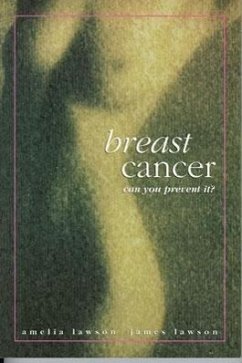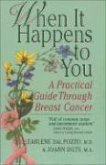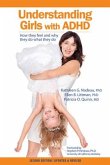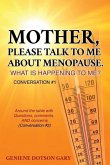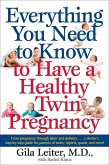"This is a valuable book that may change the lives of many women and the perspectives of many investigators. I strongly recommend it for specialists and non-specialists, professionals and non-professionals, and for both women and the men who care for them." Dimitrios Trichopoulos, MD, Vincent L. Gregory Professor of Cancer Prevention and Professor of Epidemiology Harvard School of Public Health, Boston, MA USA. Breast cancer is the most common and feared of all cancers affecting women in the developed world. More middle-aged Western women die of breast cancer than from motor accidents or any other single cause. Although death is an inevitable part of life, illness and the prospect of early death from breast cancer is particularly distressing. In part, this is because for many women their breasts are intrinsic to their femininity: loss or damage of them through cancer can result in profound dismay and grief. For over three centuries there has been intense scientific research for the causes, preventative measures and treatment of breast cancer. Nearly forty thousand research studies have been done in the past decade alone. The search is one of the most crucial scientific detective stories of the twentieth century. In this pioneering book, Professor James Lawson and his daughter Amelia Lawson describe the research-based, scientific progress that has been made in the fight against breast cancer. They outline the basic facts about breast cancer so women can assess their risk of contracting the disease and they suggest steps women can take to reduce these risks. Breast Cancer: Can you Prevent It? does not and cannot offer a world free of breast cancer but it does offer an understanding of thedisease and therefore, hope.
Bitte wählen Sie Ihr Anliegen aus.
Rechnungen
Retourenschein anfordern
Bestellstatus
Storno

